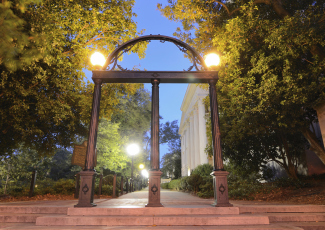Social Work Program Meeting Critical Community Need
By Sarah Asp Olson
May 26, 2016
This fall, Dodge City Community College will offer a bachelor’s degree in social work to help meet the need for more social workers in the rural communities it serves.
St. Francis Community Services provides everything from alcohol and drug counseling to adoption and child welfare services in the rural region surrounding Dodge City, Kansas. Its operation, like that of many social service organizations, relies heavily on social workers.
“We’re required in the majority of our programs to have licensed social workers,” says Kerri Kemp, St. Francis’ human resources manager.
The demand for licensed social workers in communities like Dodge City — and throughout the state — often doesn’t match the supply. Kansas’ Department of Children and Family Services reported 67 vacant positions in December 2015, a 67.5 percent increase in vacancies from the previous year.
“It’s been an ongoing issue,” Kemp says. “I’ve been with St. Francis going on nine years, and we’ve consistently been recruiting for licensed social workers.”
Starting this fall, in an effort to help with this chronic shortage, Dodge City Community College (DCCC) will partner with Fort Hays State University (FHSU) to provide a Bachelor of Social Work degree at DCCC.
Social work students at DCCC will take the same courses as FHSU students, but DCCC students will be able to them at the community college over a three-year period. Classes will be taught twice a week, in the evening, and some will be offered online. FHSU faculty will oversee the program at DCCC.
Why a four-year degree at DCCC?
It can be hard to recruit professionals to rural areas. Instead of focusing on enticing people to move to the area, why not build needed programs in the community?
“This partnership could help build community capacity in Southwest Kansas,” says Rekala Tuxhorn, a counselor at DCCC, who will be teaching in the new social work program this fall. “The degree will be offered in the location where students have already invested their lives. They are more likely to stay to build professional capacity in the local community.” FHSU is nearly two hours away by car from Dodge City.
As someone who has firsthand experience with the shortage of social workers in Dodge City, Kemp is excited about the partnership and what it could mean for the area.
She’s already seen interest among professionals currently working in the field. At St. Francis alone, up to five employees who are currently designated family-support workers have expressed interest in going back to school through the DCCC-FHSU partnership.
“I really, truly believe the program is going to be an asset — that it’s valuable for Dodge City and the surrounding counties,” Kemp says. “It’s a great way for students to obtain their degree in the Southwest Kansas area without having to relocate or travel to go to school. In return, I think [social workers] are going to be more likely to remain in the area to work.”
Kemp notes that the current social workers in Dodge City and the surrounding area will benefit from the DCCC program as well. More social workers means lower caseloads for each social worker — and better service to the community. “It will help with [social worker] turnover rate,” Kemp says.






